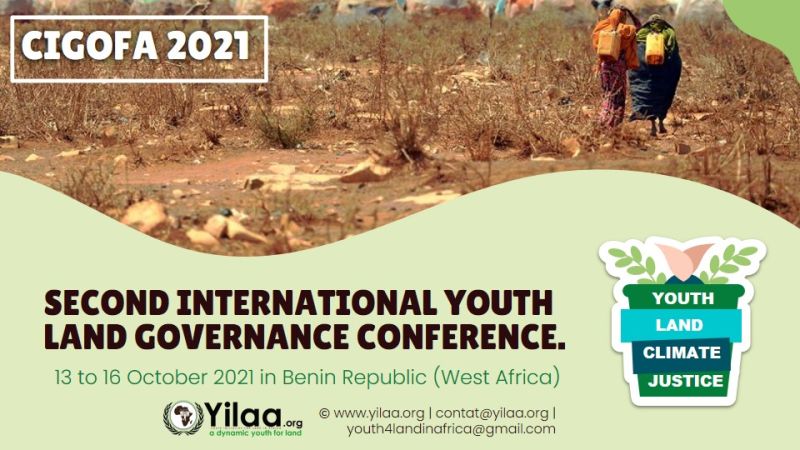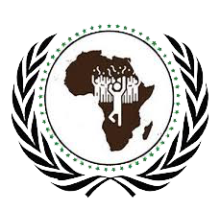The Pan Africa Youth Land Governance Conference is has been organized by the Youth Initiative for Land in Africa (YILAA), in collaboration with Oxfam International, African Union Department of Agriculture, Rural Development, Blue Economy and Sustainable Environment of the African , International Land Coalition, Cadasta, Prindex, Global Land Alliance, Cicodev, Land portal , Landesa, Colandef, Kenya Land Alliance among and other partners. It is taking place in Cotonou, Benin from 13-16 October 2021, with many participants joining virtually from various locations globally.
CIGOFA 2021, a French acronym for Youth land Governance Conference 2021, takes place at a time when the COVID-19 pandemic has claimed thousands of lives and pushed millions of people in Africa into poverty. The conference is timely as agriculture is projected to play a crucial role in the socio-economic recovery of a continent in which the sector accounted for at least 60 percent of total employment before the pandemic. But even as African citizens turn to their land for answers, there is the stack reality of climate change that many vulnerable communities, including women have to contend with. This has been demonstrated by the higher frequency and severity of flooding, droughts, and locust infestation in the past few years, even as the rich nations, who are mainly responsible for the greenhouse gas emissions, continue to renege on their commitments to finance climate adaptation. Nonetheless, non-state actors, civil society organizations, and intergovernmental organizations have seen the need to collaborate with youth to address climate change and demand climate justice. Such initiatives include the African Forest Landscape Restoration Initiative (AFR100) of the African Union Development Agency (AUDA-NEPAD), the African Union’s Great Green Wall initiative (GGWI) and the Women to Kilimanjaro Initiative. The youth, more than ever, must step forward and raise their voices to safeguard the planet which includes resources such as land on which their economic well-being inextricably depends.
The conference is designed to respond to the economic and gender inequalities perpetuated against the youth, indigenous communities, and women by the slow implementation of policies and frameworks on failing land governance systems and regimes in many African countries. For example, despite Africa being the youngest continent, with three in five people being under the age of 25, the youth only occupy the fringes of land policy formulation processes and are equally dismissed by traditional mechanisms as too young to engage.
The event will provide a platform for reviewing Africa’s land governance and climate justice architecture from the youth’s point of view, sharing best practices in land governance, the importance of the traditional leaders in youth land governance and building networks and partnerships useful for developing the agency of youth in accelerating the ongoing work on land governance on the continent. The conference will also bring together the youth’s voices to collectively call for the inclusion of young people in high-level dialogues by governments, Civil Society Organizations, land actors, youth, researchers, and international and national organizations.


